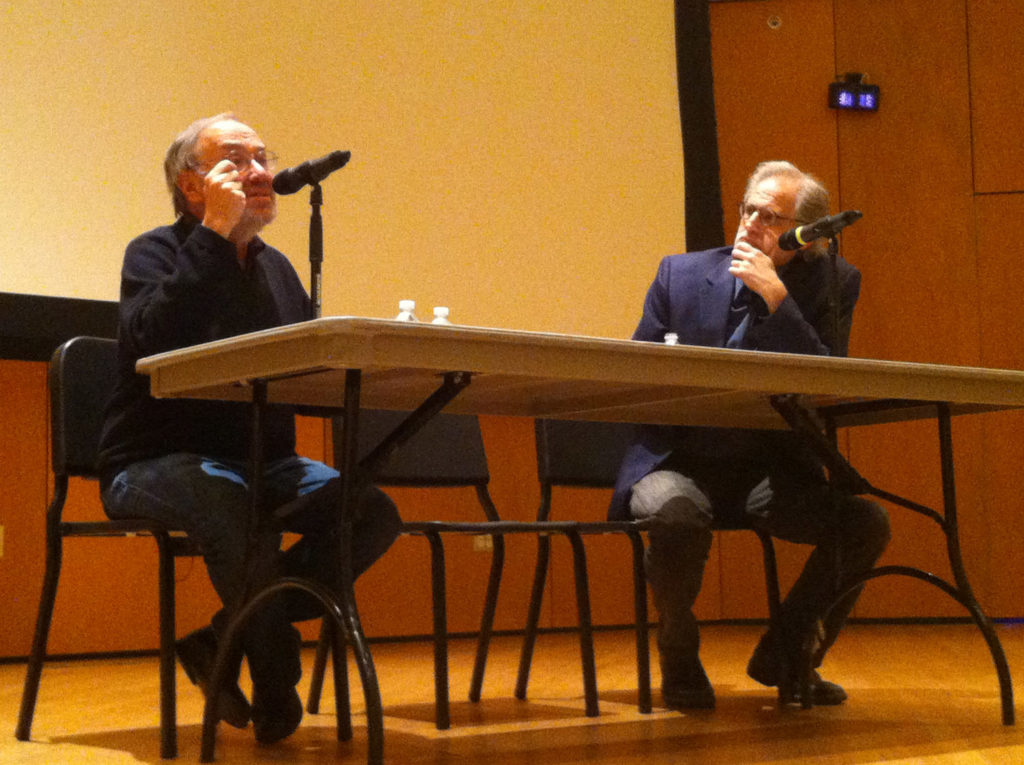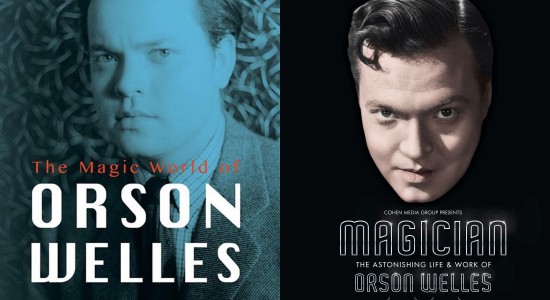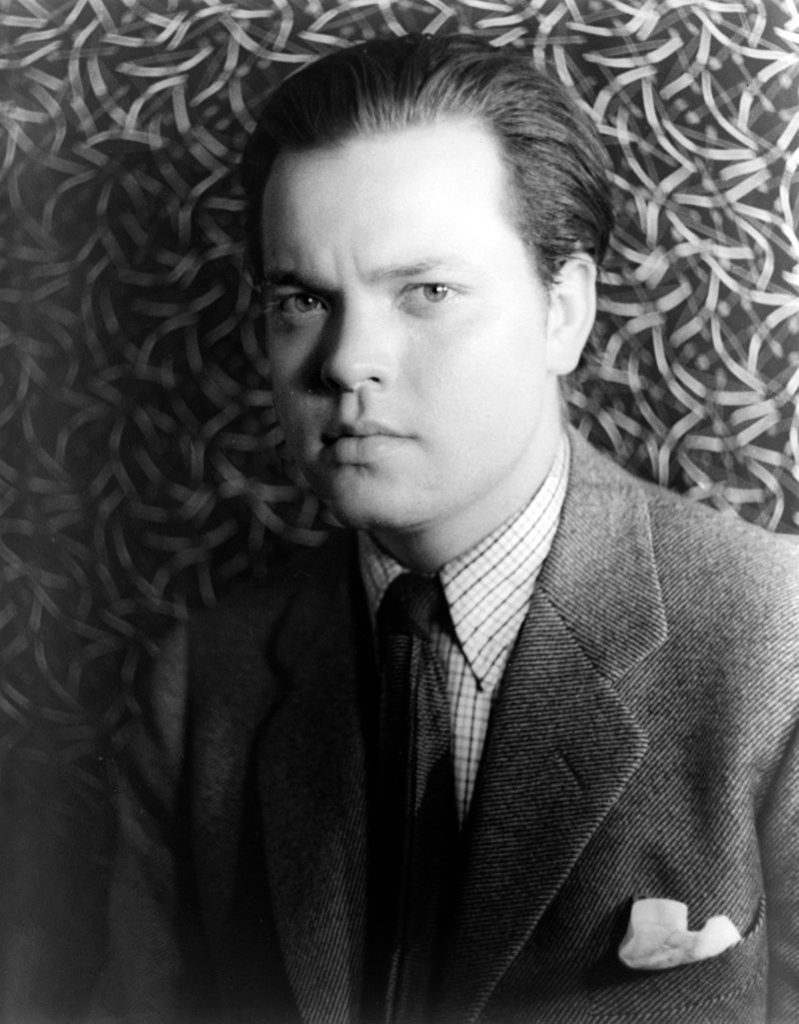“When [Orson Welles] ate food, it was like looking at two people making love. Orson loved food,” said Wolfgang Puck, the Austrian-born chef and restaurateur in the documentary film The Astonishing Life and Work of Orson Welles.
Orson Welles (1915-1985) was an actor, director, writer and producer who, according to many critics and movie lovers, is one of the greatest movie directors of all time. He is best known for directing and acting in Citizen Kane, and writing and voicing the 1938 radio broadcast “The War of the Worlds,” which led many people to believe that the world was actually coming to an end.
On Nov. 3, Montclair State University hosted a screening as part of a two-day celebration of Welles’ 100th birthday. The Astonishing Life and Work of Orson Welles was shown in Leshowitz Recital Hall, which was filled with students and professors of all departments, as part of the weekly Film Forum sponsored by the Film Institute of Montclair State.
The director and editor of the documentary, Chuck Workman who also made a documentary about Andy Warhol, came to present his latest project, which centered on Welles.
Before the screening, Workman introduced the documentary. He said that he hopes people will see the incredible amount of work that Welles put into his films. “In each film he did something different,” said Workman. “The acting might be different or the editing. In his next one, he might’ve worked with another cinematographer.”
After dealing with the life and work of Welles, Workman shared that he was blown away by his talent.
The documentary showed interviews of people who knew Welles personally or have studied his life and work extensively. Among the people interviewed were Oscar-winning directors Steven Spielberg, Richard Linklater, George Lucas and Martin Scorsese, actor Anthony Perkins and long time associates of Welles as well as interviews of Welles himself.
Welles was widely known as an incredibly charming individual. His mother was a social reformer and his father a businessman, who later turned to alcohol and gambling. Their parents divorced when he was very young. In an interview, Welles said that he wished to have had one place he could call home, but couldn’t due to moving around with his mother so much as a child.
When he was working for radio stations, Welles said that, since it wasn’t illegal, he used to take ambulances to get from one radio station to another. On why he did “The War of the Worlds,” Welles said that before the radio, people looked critically at what the newspapers reported on. However, when the radio came along, Welles said, “Anything that came from that machine was believed.”
Welles was notoriously flirtatious with both sexes. According to a friend, he wasn’t a family man and having a wife and children was an encumbrance to his work.
Welles was seen as having challenged Hollywood ideology. He was fired from projects multiple times and got into arguments with producers. Welles received the Academy Award for best screenplay for Citizen Kane in 1941. He didn’t personally pick up the Academy Honorary Award in 1970. Director and friend John Huston accepted it for him.
Orson died of a heart attack in his home a few hours after his last public appearance on The Merv Griffin Show. He left behind three children and his Croatian partner of the last 24 years of his life, Oja Kodar.
The Munich Film museum in Munich, Germany archives many of Welles films as well as films that he left incomplete like The Merchant of Venice and Don Quixote.

Documentary filmmaker Chuck Workman, left, and professor Art Simon, right, at the at the question and answer portion of the event.
Photo Credit: Awije Bahrami
The screening was followed by a question and answer session. Workman said that he had a wishlist of people he wanted to interview. “Sometimes I couldn’t get things, but a lot of it is there,” he said.
Workman couldn’t give the exact cost for making the documentary, but gave the audience a hint that it cost between $30,000 to $1 million.
Workman concluded that what he admires about Welles is that he never stopped. “He would get fired or wouldn’t have any money to produce films and it would happen over and over again, but he kept going.”
Greg Buracker, a senior filmmaking major said that he enjoyed the documentary. “It was an excellent portrayal of a complicated man who will forever be remembered for his cinematic brilliance.” What he admires about Orson Welles most is that “he wasn’t afraid to come back.”
Josh Oksman, a junior Communication major, said that the documentary was informative. “It showed that he [Welles] always tried to play by the beat of his own drum.” Oksman added that since our generation doesn’t know much of him, “It was nice to get to know him and his work better through the documentary.”




